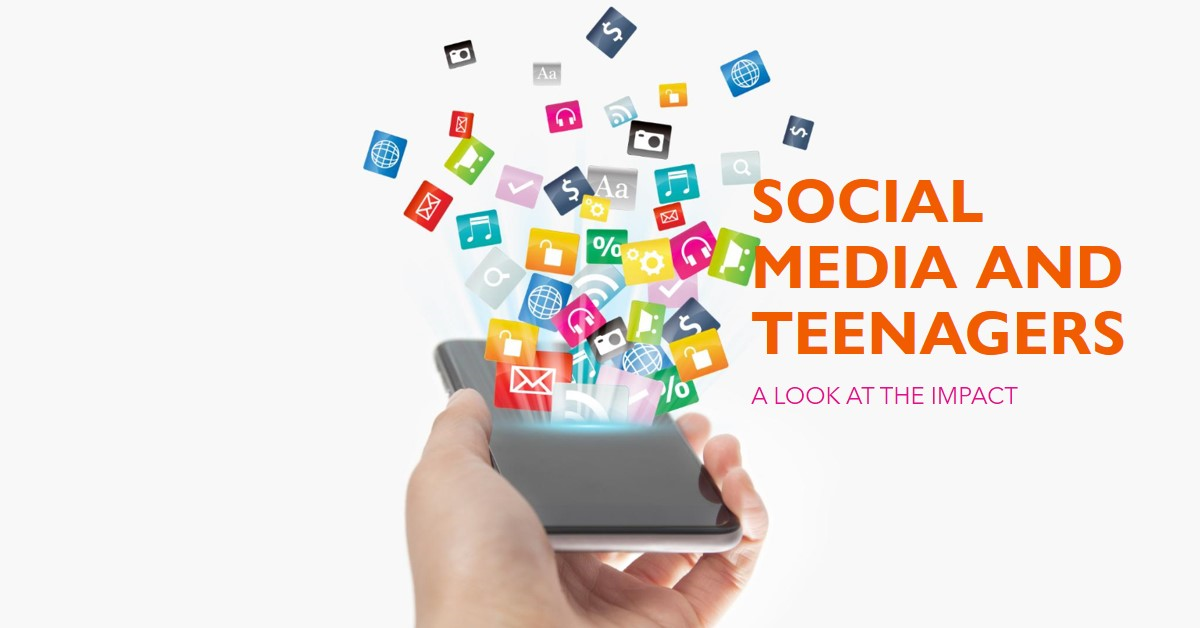The Impact of Social Media on Teenagers
This article explores the impact of social media on teenagers, covering both the positive and negative aspects. It provides actionable tips for parents and educators to guide teenagers towards responsible social media usage.
Teenagers’ Voices
Social media is a double-edged sword for teenagers. To understand their perspective, we spoke to a few teens anonymously about their experiences:
- “Social media is a great way to connect with friends, but sometimes I compare myself to others and it makes me feel bad.” – Sarah, 16
- “I joined an online support group for teenagers with anxiety, and it’s been amazing to connect with others who understand what I’m going through.” – David, 15
- “There’s a lot of pressure to be perfect online, and it can be exhausting trying to keep up with everyone else’s highlight reels.” – Emily, 17
These are just a few examples, and teenagers’ experiences will vary. However, it highlights the importance of open communication and creating a safe space for teenagers to discuss their online experiences.
The Impact of Social Media on Teenagers

Social media platforms have revolutionized the way teenagers communicate, share information, and express themselves. Here’s a closer look at the impact:
- Communication and Connectivity: Social media allows teenagers to stay in touch with friends and family, even across long distances. Platforms like Facebook and WhatsApp enable instant messaging, photo sharing, and video calls.
- Information Sharing and Expression: Teenagers can express themselves and share their thoughts, ideas, and experiences with a global audience. Platforms like Instagram and YouTube allow them to create content and build an online presence.
- Entertainment and Engagement: Social media offers a vast array of entertainment options, from funny videos and memes to music and games. Teenagers can also connect with their favourite celebrities, influencers, and brands.
Positive Impacts of Social Media on Teenagers
While social media has its challenges, it also brings several positive benefits:
- Access to Information and Educational Resources: Teenagers can follow educational accounts, join groups related to their interests, and access articles, tutorials, and videos on various subjects. This broadens their knowledge and enhances learning.
- Opportunities for Creativity and Skill Development: Platforms like Instagram and YouTube provide a platform to showcase creative talents like art, photography, music, or dance. This exposure boosts confidence and helps develop valuable skills.
- Building Relationships and Support Networks: Social media allows teenagers to connect with like-minded individuals who share similar interests. Online communities and forums can provide emotional support and encouragement, especially for teenagers facing challenges.
Negative Impacts of Social Media on Teenagers
While social media offers numerous benefits, it also presents some significant challenges:
- Mental Health Issues: Excessive social media use can contribute to anxiety, depression, and low self-esteem. Constant comparison with others’ seemingly perfect online lives and the fear of missing out (FOMO) can take a toll on mental well-being.
- Cyberbullying and Online Harassment: Social media platforms can be breeding grounds for cyberbullying and online harassment. Teenagers may experience bullying, hate speech, or trolling, leading to severe psychological consequences.
- Privacy and Online Safety: Teenagers often share personal information, photos, and videos without fully understanding the potential risks. This can compromise their privacy and put them at risk of online predators, identity theft, and cybercrimes.
Long-Term Effects
The long-term effects of social media use on teenagers are still being researched. However, some potential concerns include:
- Sleep Patterns: The constant blue light exposure from screens and the stimulating nature of social media content can disrupt sleep patterns, impacting concentration and overall health.
- Self-Esteem Development: The focus on idealised online personas can negatively impact self-esteem, especially for teenagers struggling with body image or social anxiety.
- Social Skills Development: Overreliance on online communication may hinder the development of essential social skills like face-to-face interaction, negotiation, and conflict resolution.
Tips for Parents and Educators
Parents and educators play a crucial role in guiding teenagers through the complexities of social media. Here are some tips to promote responsible social media usage:
- Open Communication: Maintain an open and non-judgmental line of communication with teenagers. Encourage them to share their experiences, concerns, and challenges related to social media.
- Set Boundaries: Establish clear guidelines and boundaries regarding social media use. Discuss
- Set Boundaries (continued): Discuss the importance of screen time limits, privacy settings, and responsible online behaviour. Consider creating a social media contract together that outlines expectations for both parents/educators and teenagers.
- Digital Literacy: Educate teenagers about online safety, privacy settings, and the potential risks associated with social media. Help them develop critical thinking skills to evaluate the credibility and reliability of online information. Resources like the UK Safer Internet Centre (https://saferinternet.org.uk/) can be helpful.
- Encourage Offline Activities: Promote a healthy balance between online and offline activities. Encourage teenagers to participate in sports, hobbies, and social interactions outside the digital realm. This can help develop real-world social skills and reduce dependence on social media for validation and connection.
- Be a Role Model: Lead by example and demonstrate responsible social media usage. Show teenagers how to engage positively, respect others’ opinions, and use social media as a tool for learning and self-expression. Avoid oversharing personal information or negativity online.
Case Studies
Here are a few examples of successful interventions to promote responsible social media use:
- A school implemented a “phone detox” week, where students were encouraged to leave their phones at home for a designated period. This allowed them to focus on face-to-face interaction, participate in group activities, and rediscover the joy of offline hobbies.
- A parent-teacher organization created a workshop series on online safety, cyberbullying prevention, and developing healthy social media habits. This initiative empowered parents with knowledge and tools to guide their teenagers in the digital world.
Discussion Prompts
- Reflect on your own social media habits. How can you model responsible online behaviour for your teenager?
- What are your biggest concerns regarding your teenager’s social media use?
- How can you create a safe and open space for your teenager to discuss their online experiences?
- Consider collaborating with other parents or educators to develop a consistent approach to promoting responsible social media use within your community.
By following these tips and fostering open communication, parents and educators can equip teenagers with the necessary skills to navigate the social media landscape safely and responsibly.


